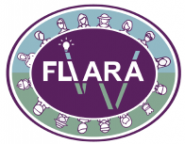The future of rural sustainability hinges on innovative approaches and the active involvement of all stakeholders, particularly women. The FLIARA consortium has embarked on an extensive foresight research mission to uncover new roles for women in addressing rural sustainability problems. Through a comprehensive process involving stakeholders across nine rural regions in nine countries, FLIARA aims to chart a course towards a more sustainable and inclusive rural future.
Unveiling sustainability challenges
FLIARA’s foresight process began with identifying key sustainability problems in rural areas. A total of 322 sustainability issues were pinpointed through workshops, interviews, and surveys involving 397 stakeholders and experts. The primary challenges varied depending on the rural context:
- Rural Areas Close to Cities: The dominant issue was the urban and growth bias in sustainability discourses and solutions, overshadowing the unique needs of these areas.
- Rural Villages: Unsustainable land management practices emerged as the most common problem.
- Remote Rural Areas: These regions faced a lack of infrastructure, facilities, local services, and activities.

By understanding these specific problems, FLIARA sets the stage for developing targeted and effective sustainability visions.
Crafting sustainability visions
Following the identification of problems, FLIARA designed 109 sustainability visions aimed at eradicating these issues. These visions were tailored to the unique contexts of different rural areas and commonly featured:
- Sustainable management of natural resources is particularly emphasised in areas close to cities.
- Provision of infrastructure is essential for remote rural regions.
- Collaborative Networks: Promoting cooperative efforts across communities.
- Innovative Rural Funding Models: Ensuring financial support for sustainable practices.
For rural villages, diversified tourism was a significant vision element, while remote areas focused on adequate infrastructure for mobility, housing, business, and leisure activities.
Envisioning Sustainability Innovations
With clear sustainability visions in place, FLIARA moved to the next phase: planning sustainability innovations. 747 innovations were identified, spanning various types: Economic-Technological, Social, Political, and Environmental Innovations.
The most common types of innovations were related to new ways of organising local development, adoption of sustainable practices and lifestyles, novel organisation of communality as well as sustainable farming models. These innovations aimed to transform sustainability visions into reality, leveraging the unique strengths and opportunities of each rural context.
Empowering Rural Women in Sustainability Innovations
A crucial aspect of FLIARA’s study was mapping the possibilities and obstacles for rural women to contribute to sustainability innovations. The analysis revealed 152 possibilities and 137 obstacles.
Possibilities:
- Extensive Networks: Women’s strong connections within communities.
- Educational Background: Women’s solid educational foundations.
- Appreciation of Soft and Social Values: Women’s intrinsic focus on social and community-oriented solutions.
Obstacles:
- Lack of Demand for Novel Practices: Resistance to Change within Communities.
- Equality Issues: Gender inequalities hinder women’s participation.
- Limited capital: financial barriers preventing the implementation of innovative ideas.
To promote women’s contributions effectively, FLIARA identified several key measures:
- Platforms for Co-creation and Cooperation: Facilitating collaborative innovation.
- Provision of Information: Sharing alternatives, examples, and good practices.
- Educational Opportunities: Enhancing skills and knowledge.
- Gender and Social Equality: Ensuring equality in all roles and activities.

Looking Forward
The results of FLIARA’s foresight study highlight significant potential for increasing women’s contributions to sustainability innovations in rural and farm domains. Women have shown a keen interest in solving sustainability problems and have demonstrated the capability to drive meaningful change through innovative solutions.
FLIARA aims to create a supportive environment where women can thrive as leaders and innovators by addressing the identified obstacles and leveraging the strengths of rural women. This not only advances rural sustainability but also promotes gender equality and social inclusion.
Ultimately, empowering women to lead sustainability innovations is a powerful lever for change. FLIARA’s foresight and trend analysis provide a roadmap for harnessing this potential, ensuring a sustainable and equitable future for rural communities. Through collaborative efforts and targeted measures, we can unlock the full potential of women-led innovation in farming and rural areas.



